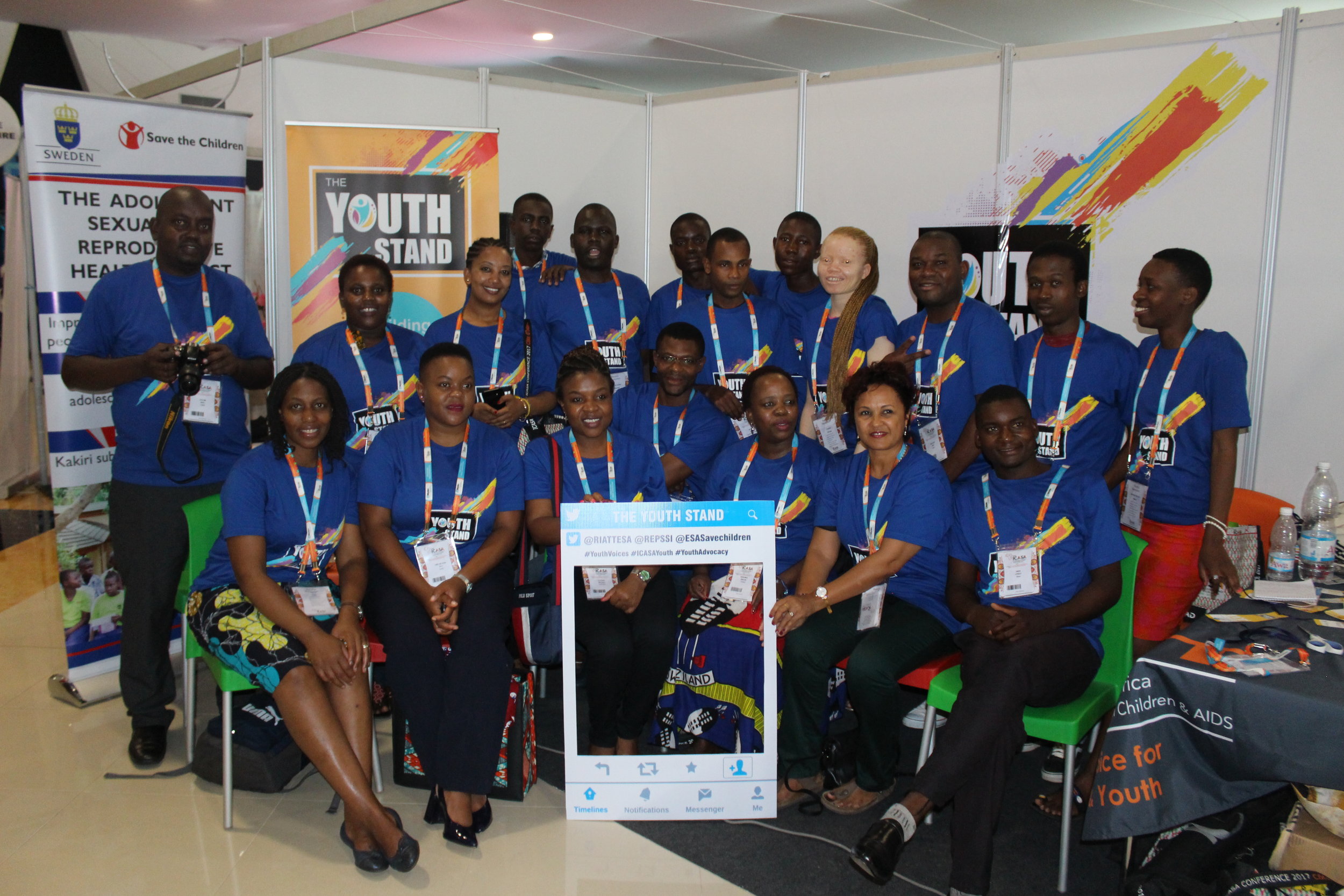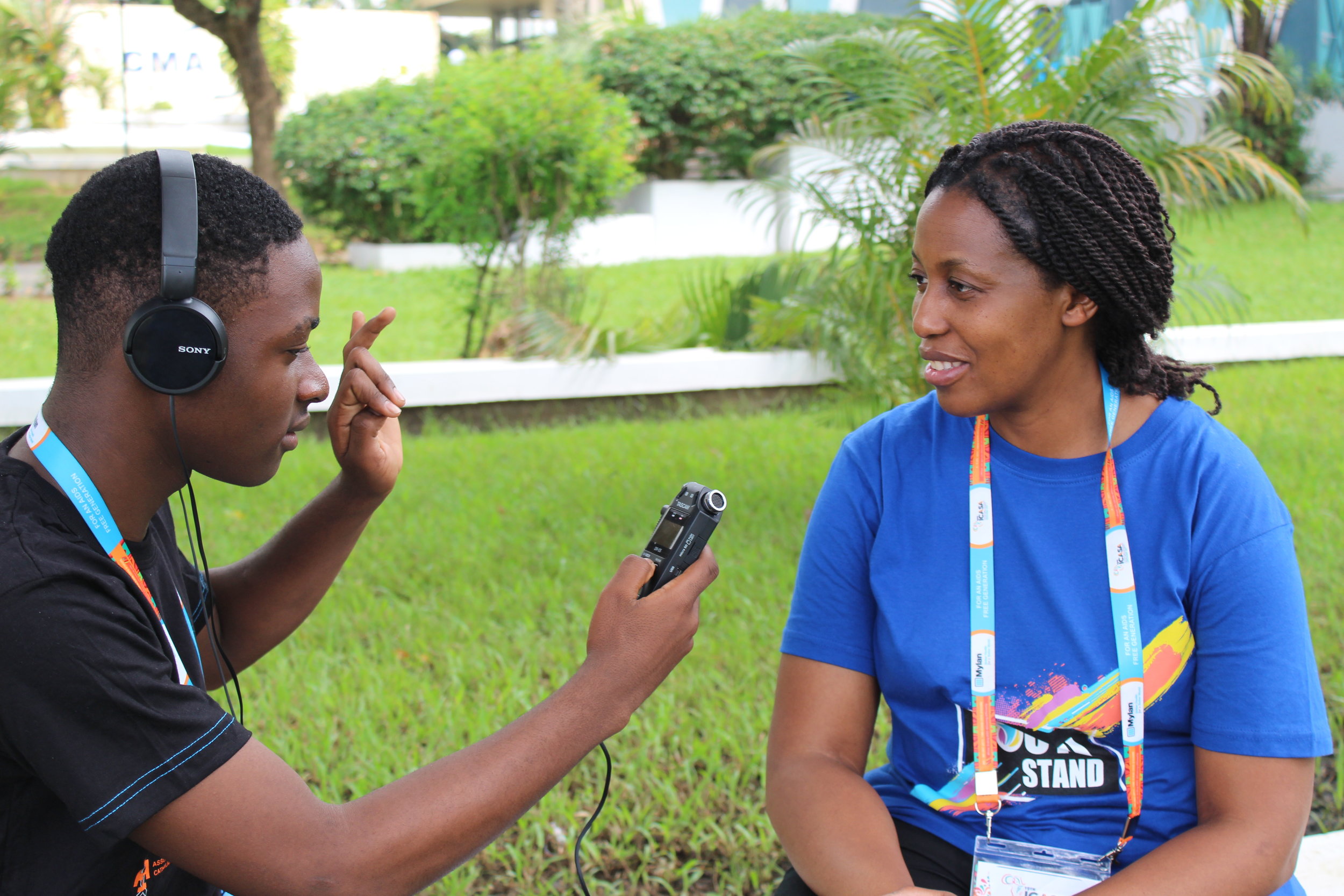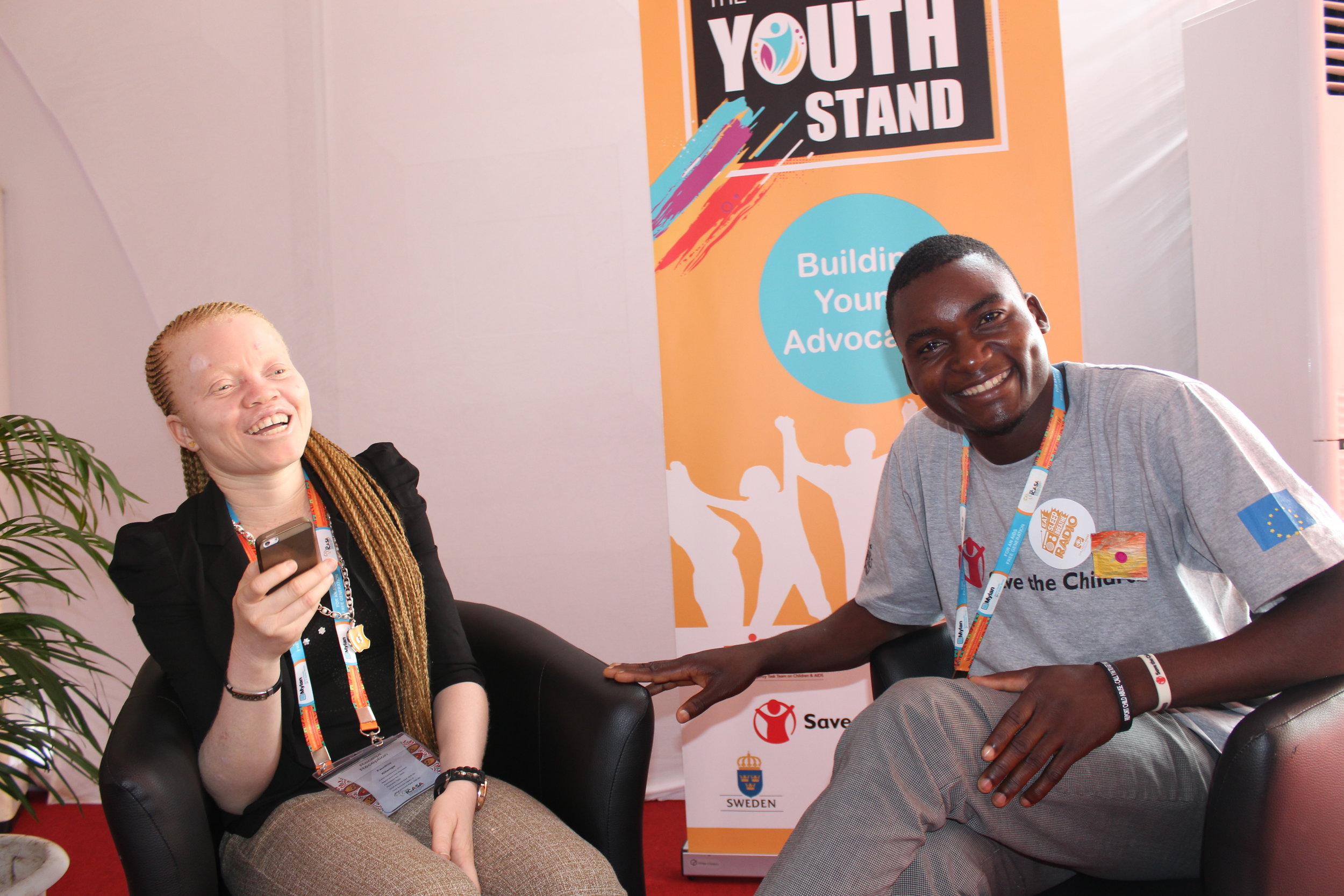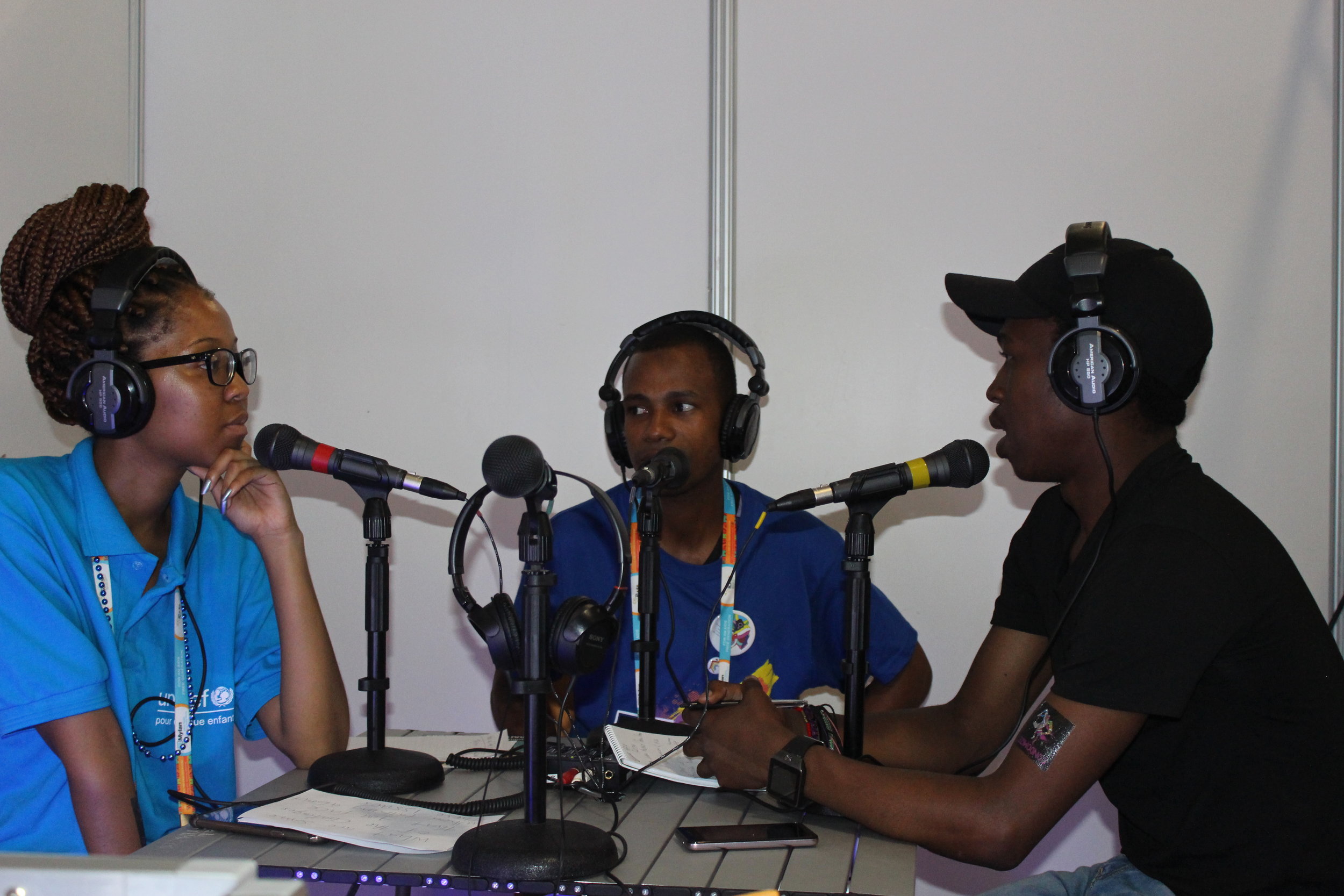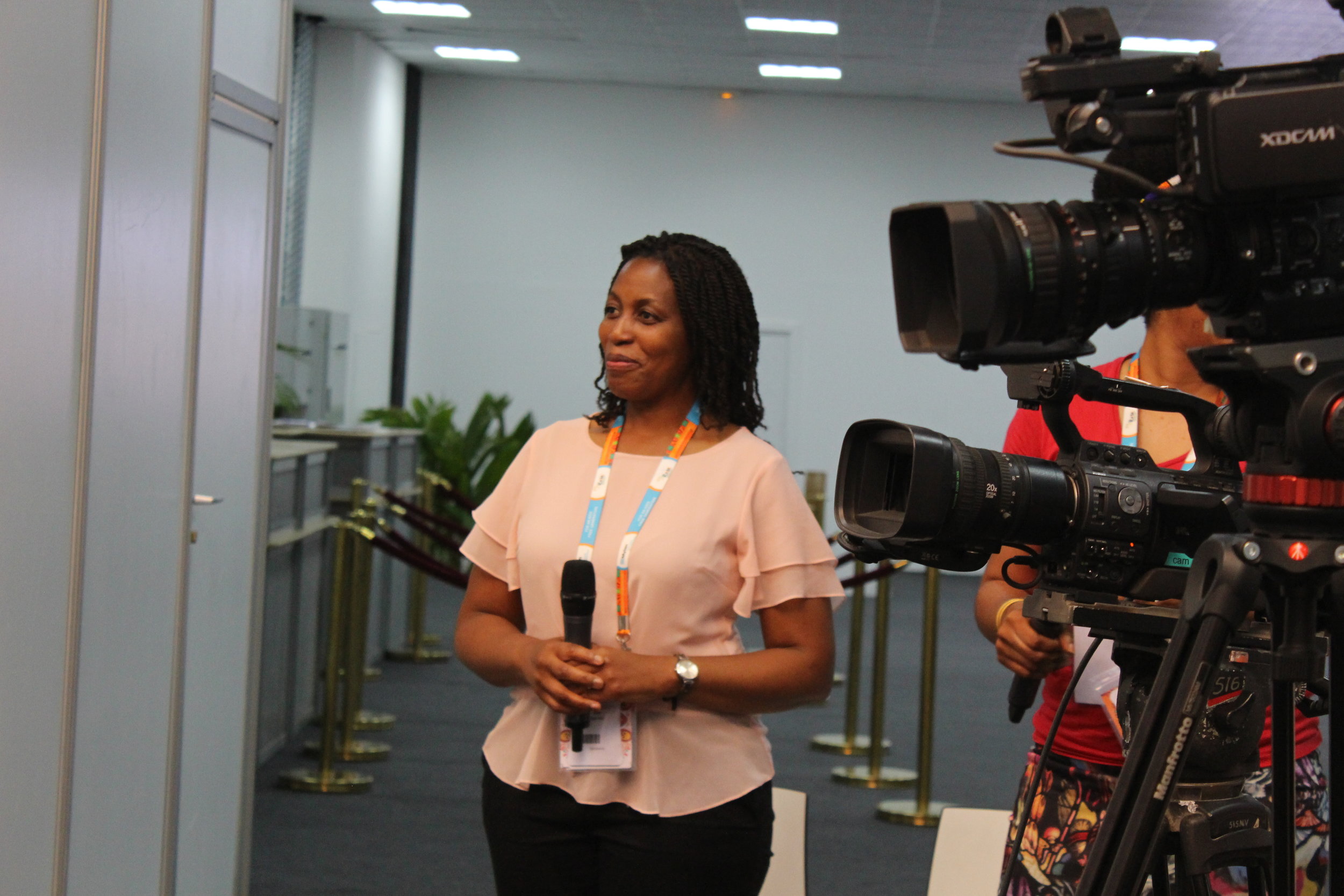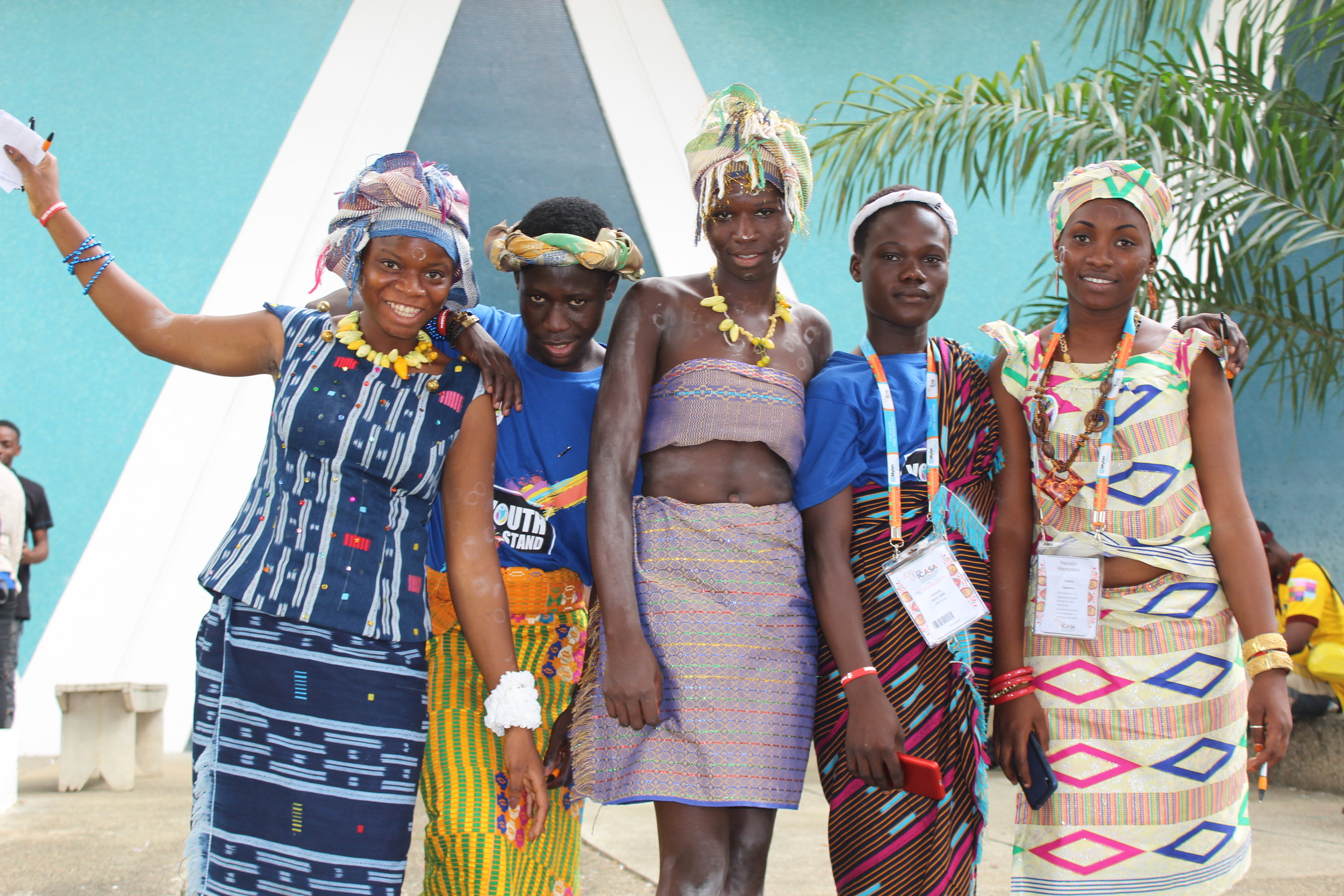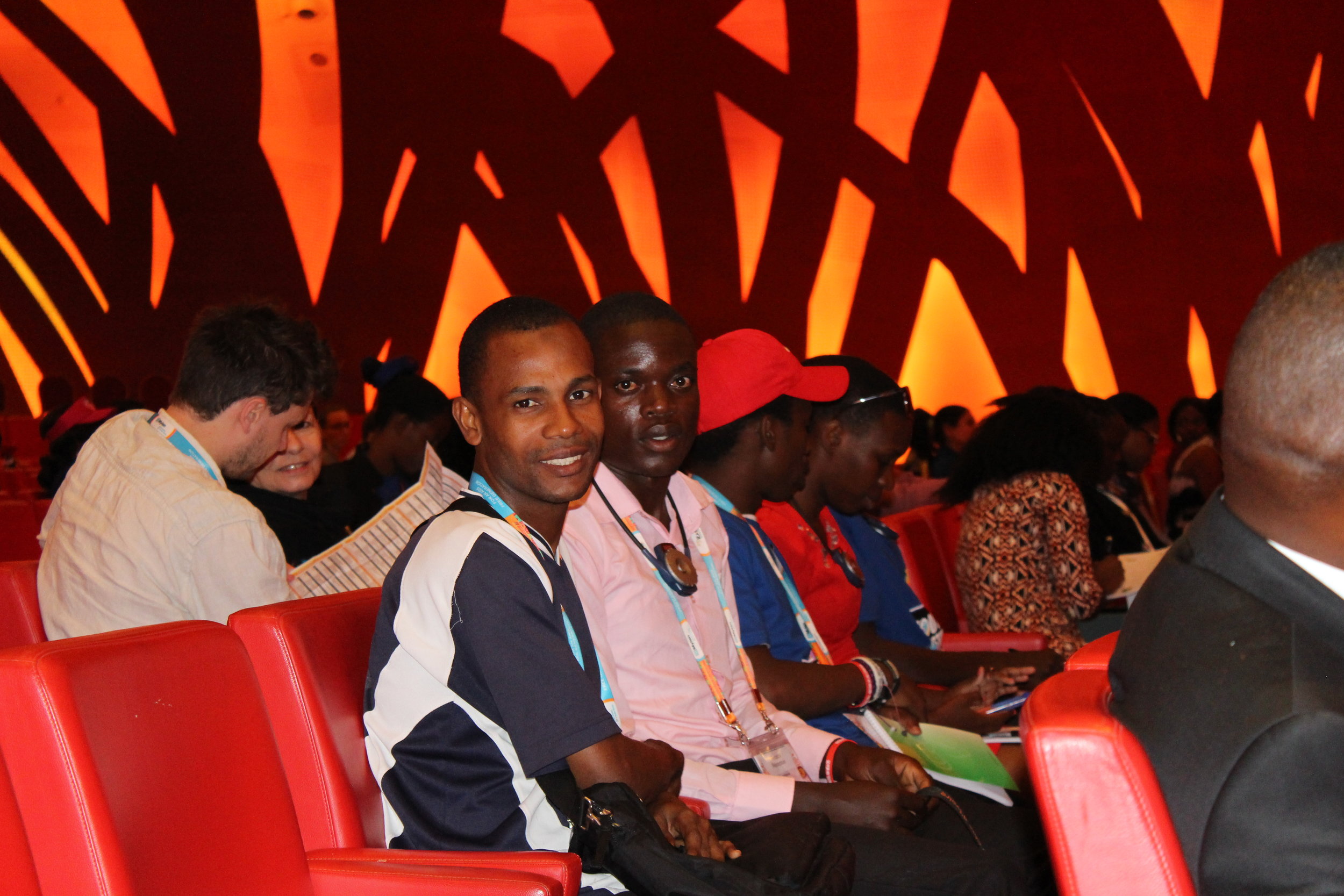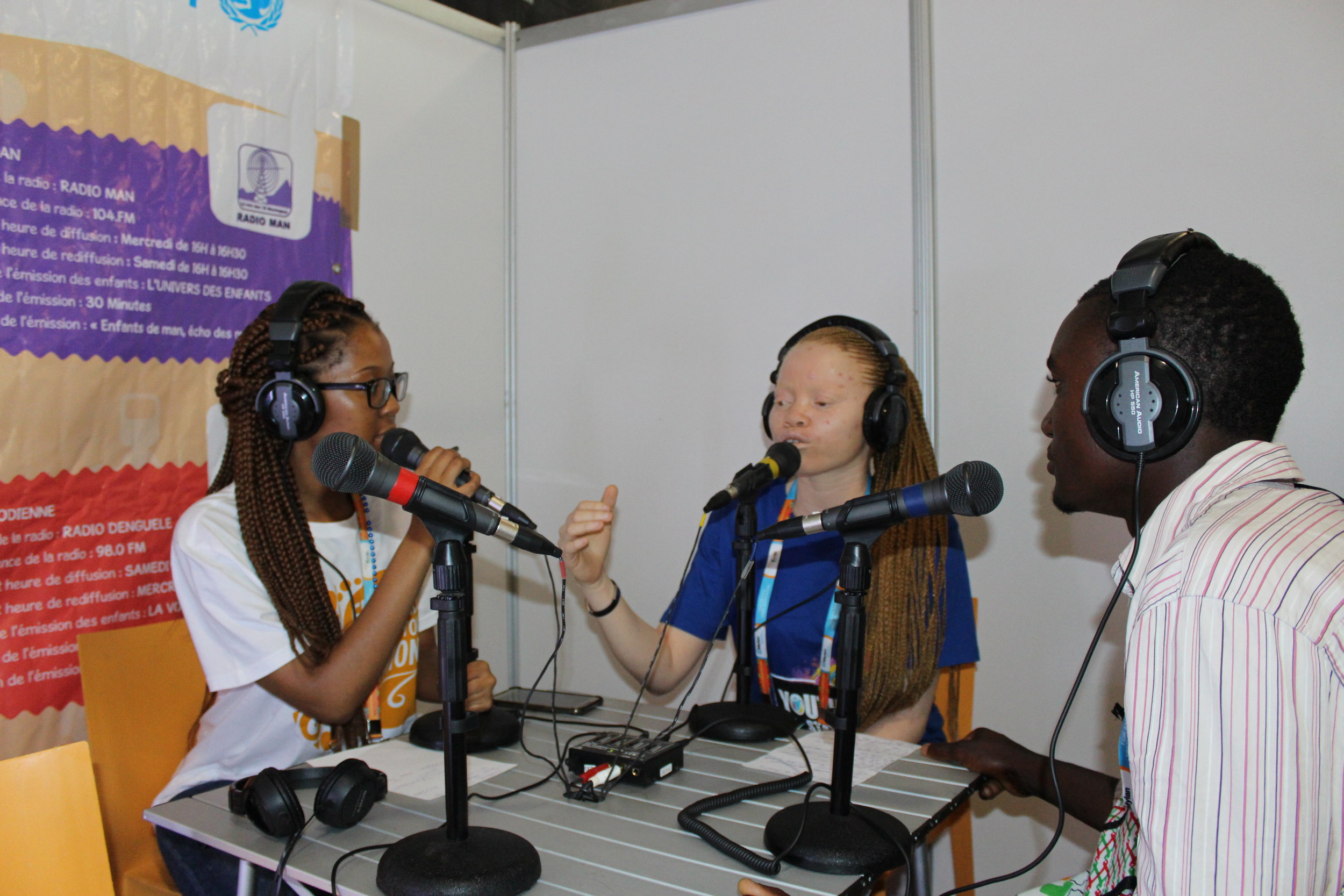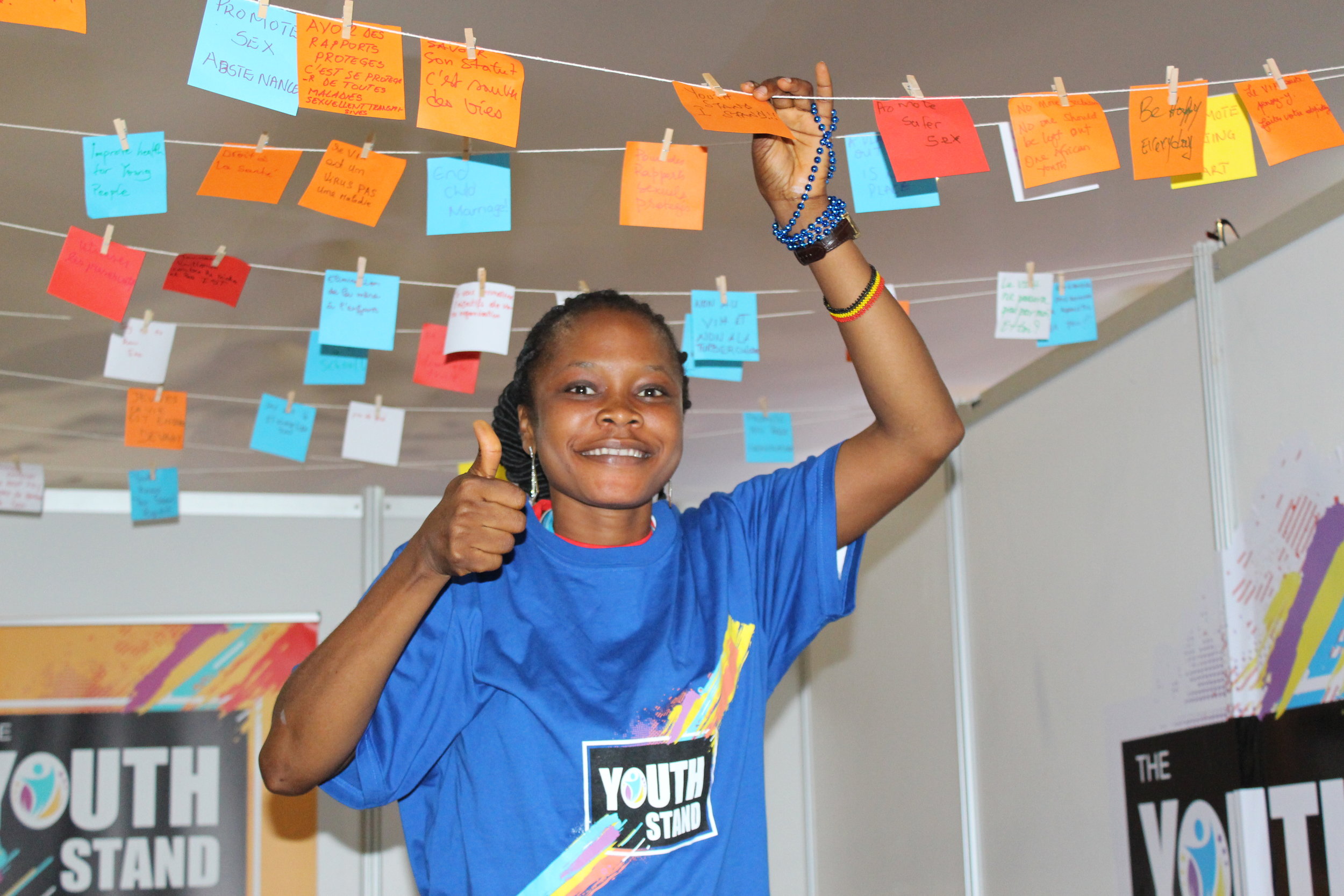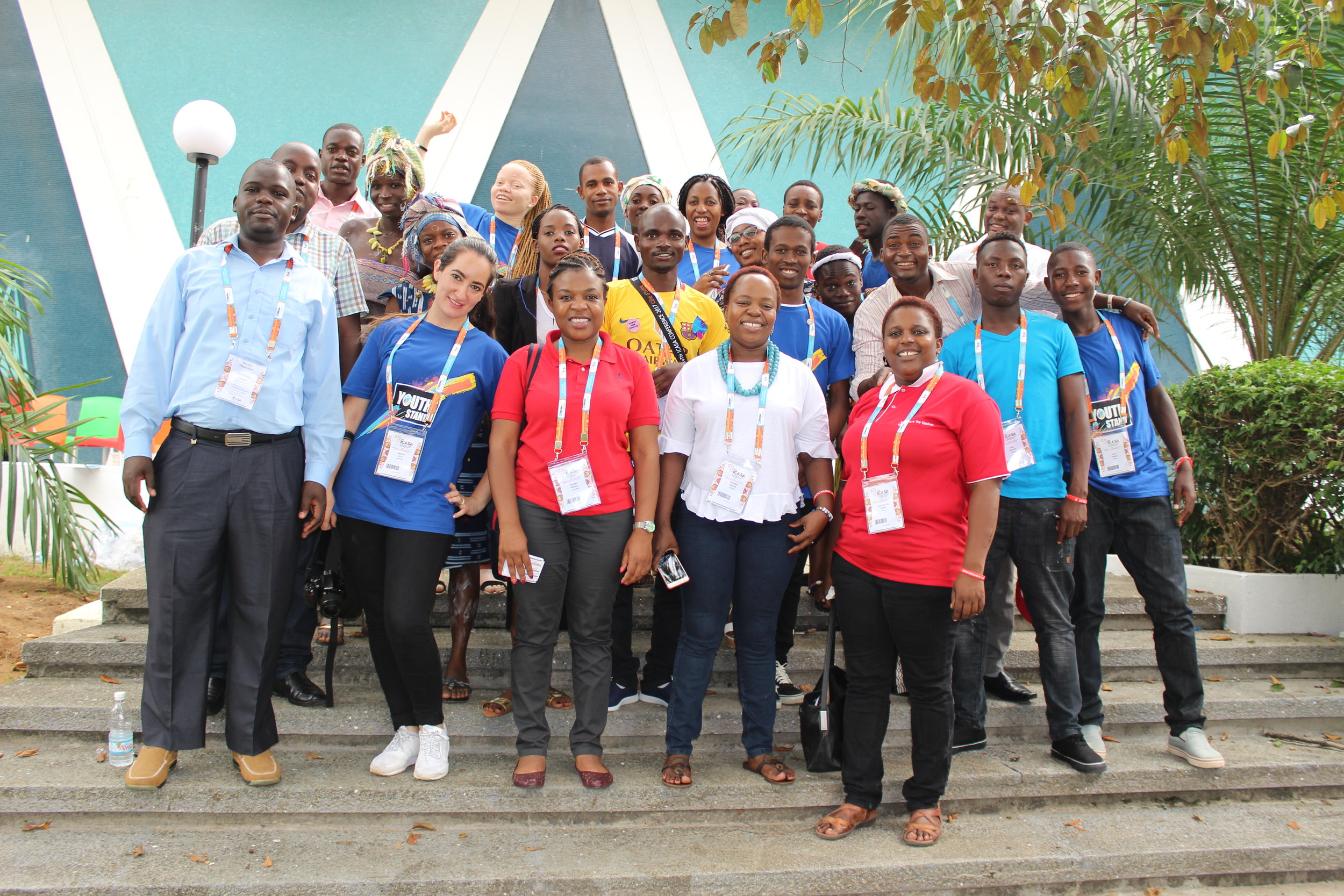From the 4th to the 9th of December 2017 RIATT-ESA programme staff, seven partners and youth advocates travelled to Abidjan, Cote D’Ivoire to attend the 19th International Conference On AIDS and STIs in Africa (ICASA), under the theme Africa: Ending AIDS-Delivering Differently. The conference was attended by more than 7000 delegates.
During the ICASA conference RIATT-ESA co-hosted a youth stand in the Community Village; Supported two young people to participate in the conference as part of their skills building as youth advocates; Co-presented a poster presentation with REPSSI on the effects of bereavement on the psychosocial well-being of HIV positive, orphaned children; and Reviewed abstracts for the track: Law, Social Science, Human Rights and Political Science.
Key Highlights
RIATT-ESA, REPSSI and Save the Children International co-hosted the youth networking stand that was managed by 13 young delegates aged between 18 and 25 years, from 8 African countries including: Tanzania, Kenya, Malawi, Swaziland, Uganda, Zambia, Zimbabwe and Cote D’Ivoire. Each young delegate brought a set of key messages to share with peers and other conference attendants. Their discussions focused on themes such as:
- SRH rights education
- Resource allocation for SRH services
- Youth access to SRH services
- Cultural messages to boys during circumcision
- The role of peer education in reducing the spread of HIV
- Sexual abuse and HIV transmission
- Ending sexual about and violence against girls
- Ending discrimination, disclosure and navigating relationships for YPLHIV
The RIATT-ESA Youth Advocates Programme
At the ICASA conference RIATT-ESA started a pilot project to develop the advocacy skills of youth by supporting two young advocates to attend the conference. Xolani Magongo aged 22 years from Swaziland focused on advocacy on the sexual and reproductive health and rights of young people living with HIV and Faudhia Kitenge, 25 years old, from Tanzania focused on advocacy on young people living with disabilities.
The youth presented their advocacy message at the youth stand, hosted discussion with their peers, did radio and video interviews and participated in dialogues and conference sessions. In a report back from the youth they highlighted what was learned and what they could do to use this information back at home.
Xolani, a young paramedic plans to revitalise his support group for youth living with HIV by hosting debates and video talk shows. Faudhia, a Bachelor of Social Work student will develop her abstract writing and presentation skills.
